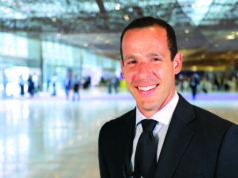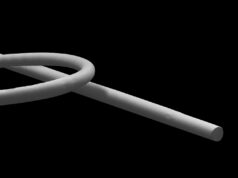
This year’s 2024 Chairing Cross (CX) Symposium (23–25 April, London, UK) will feature debates on the success of endovascular arteriovenous fistulas (AVFs) alongside patient involvement and vascular access and renal intervention sessions among much more. The programme aims to further debate surrounding controversies in several fields and open conversations on the development of more conclusive evidence within vascular access practice.
More focussed and robust evidence-based guidelines, according to one of the programme directors and Renal Interventions executive board member Nick Inston (University Hospitals Birmingham, Birmingham, UK), are essential for betterment of the field of vascular access. During a recent preview for the CX 2024 programme—which was broadcast live from the CX Studio on Thursday 26 October—he stated that “[vascular access] is a huge disease area throughout the world; it is incredibly exciting, but in many areas we do not have the evidence, we do not necessarily know what is the best thing to do. The guidelines are out there, but they are vague, so that is why it is so good to have controversies this year. This is an area where we don’t always know what should be done”. He thinks that the CX symposium is the perfect venue to address this, as “[there] is a lot based on expert opinion, and we get [the experts] together at CX; the whole thing is set up to have those debates, have people at the mic saying what they do, and at the end of this, hopefully we can agree”.
When asked what he felt the highlights of this year’s vascular access and renal interventions debates were, Inston said: “One of those debates is about endovascular AVFs, or device-created AVFs. In the last few years, we have found that we have gone from a surgical created AV fistula, to creating fistulas with devices. There are two major devices at the moment that we use, and I do not think we know the right way to use those… I do not know if that is the right way compared to surgical fistulas, because we have not really done those studies yet, so we are having a huge debate.”
The fact that there have been no randomised studies between surgical and endo AVF was cited as one of the main reasons for his eagerness for this debate in particular.
“These devices… are brought in because otherwise we would miss out on a great technology that is coming through, but if we do not actually try and compare these with our gold standards are, how do we know what is going on? So, what we are going to do, rather than just present data from observational studies, we are going to throw it open and have a debate about whether or not this is the right thing to do, and whether or not this is a big experiment in terms of what we are doing [regarding] treatments.”
Sticking with the theme of controversies, the title of this debate is “Endo AVFs are a failed experiment”, which Inston feels will help spur discussion. “That is the motion. You do not have to agree with it, but you can come along and debate it. We hope the audience will have their own views, and what we are trying to promote here is strong views and getting people presenting those strong views at the microphone.”
Fellow programme director and Renal Intervention executive board member Kate Steiner (East and North Herts NHS Trust, Stevenage, UK), when asked the same question, felt that “one of the high points is going to be that we now have the workshop up and running, and it is going to be much bigger this year. During the workshop, we are going to have some edited cases for discussion, where you really have a great opportunity to learn from the experts. This is going to be a great opportunity for some really good learning and sharing from people who are experts in their field, on difficult areas where, like Nick has said, there is a lot of technology out there now, but where do we use it? Where is it best applied? Where do we really see the benefit for our patients?”
Another aspect of the programme that Steiner highlighted in the preview was the session planned on drug-coated balloons (DCBs). “We have a really good section on DCBs planned. We have level one evidence for DCB use in arteriovenous (AV) access. But I think it is fair to say that, overall, if you look at the evidence, it is very mixed,” she said about the planned session. “So where do we use them? Where are they best applied? We have the paclitaxel coated devices, which have been around for a while now, and now we have the new player, sirolimus, entering into the scene. So where will that fit? We have a great session presenting the current evidence, and also, some of the new trials which are evolving as well, and how they are going to fit and answer some of these really difficult questions, which we face in our practices every day; what do you use and when do you use it?”
A true benefit of CX is the fact that it is “an international symposium,” as Inston puts it. Having seen the differences [internationally], in patient populations, treatments and “ways of doing things”, he feels that it is crucial to have “everyone in the audience from around the world, which CX does”, so that there is a global forum to discuss guidelines, debate their validity, and decide what the right thing is for practices and patients alike.
Towards the end of their section of the livestream, Inston addressed the importance of renal interventions and how it essential that it is not overlooked. “It is the whole package of [kidney] care, so what we are going to do a lot of this year [at CX] is look at the renal vessels, renal denervation, nutcracker syndrome, the renal artery, aneurysms—they are all things that on a day-to-day basis, are rare, but a lot of us get dragged into [doing] and do not really know what to do”. As a final question, Inston was asked if renal denervation was back, after an apparent decrease in popularity, to which he replied “well, we are going to find out”.
The Vascular Access Masterclass is set to take place on the morning of Tuesday 23 April, followed by a session on renal intervention the same afternoon, with a hands-on workshop set to take place on Wednesday 24 April.
To watch the full CX Vascular Live programme preview, click here.











